Feminized Seeds in Biodynamic Farming Practices
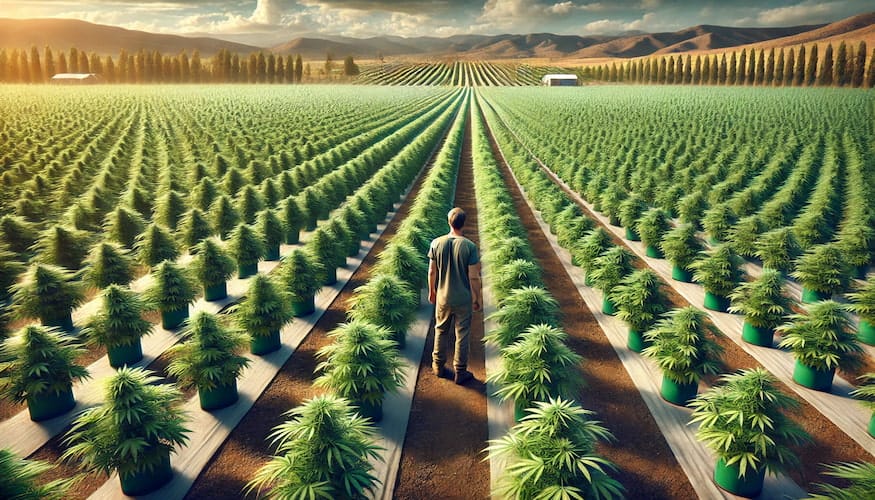
The interweaving of feminized seeds into biodynamic farming practices marks a significant stride toward sustainable agriculture. This innovative integration not only streamlines productivity but also enshrines the ethos of eco-friendly cultivation and ethical farming. By focusing on the natural lifecycle and unique advantages of feminized seeds, farmers adopting biodynamic methods are setting new benchmarks for environmental stewardship.
Key Takeaways
- Feminized seeds provide a consistent and high-yielding crop, essential for the success of sustainable agriculture.
- Biodynamic farming techniques complement feminized seeds, enhancing soil vitality and fostering eco-friendly cultivation.
- Utilizing feminized seeds can reduce the environmental impact of agriculture, aligning with ethical farming practices.
- These seeds eliminate the need for gender separation, streamlining the farming process within a biodynamic framework.
- Feminized seeds play a crucial role in the longevity and productivity of biodynamic farms, perpetuating a cycle of sustainable and responsible agriculture.
The Evolution of Cannabis Cultivation Toward Ethical Production
Once shadowed by the stigma of the black market, cannabis cultivation has made momentous strides forward amidst the winds of legalization. This journey towards mainstream acceptance has not only redefined the industry’s presence in the market but also its commitment to ethical production, embracing a new paradigm that integrates regulatory frameworks, environmental consciousness, and sustainable practices.
The Shift From the Black Market to the Legal Cannabis Industry
Legalization has been a cornerstone in shaping the contemporary landscape of cannabis cultivation. As countries and states adopt progressive policies, the industry, once concealed in the shadows, has emerged into the light of legality—a shift that enables cultivators to operate transparently and responsibly. The new legal canvas offers opportunities for businesses and entrepreneurs to contribute to a burgeoning market that prioritizes regulated products and the safety of consumers.
Regulations and Oversight of Cannabis Farming Ethics
The implementation of a sturdy regulatory framework serves as the foundation for ethical production in cannabis cultivation. Oversight agencies ensure cultivators adhere to stipulated guidelines that preserve the environment, the quality of produce, and the social responsibilities held by those within the industry. From seed to sale, every facet of the cultivation process now remains under scrutiny to protect both the consumer’s interests and the ecological balance essential for Sustainable Farming.
Role of Feminized Seeds in Ethical Cultivation Practices
Feminized Seeds play a pivotal role in this ethical revolution by offering a reliable pathway to reduce agricultural waste and improve crop quality. Through the use of Feminized Seeds, growers can ensure nearly 100 percent female plant yields, thus greatly reducing the need for resources and interventions like pesticides. Their role in bolstering ethical cultivation practices is undeniably integral to achieving the overarching goal of sustainable farming within the legal cannabis sector.
A Deep Dive Into Feminized Cannabis Seeds
The cultivation of feminized cannabis seeds is revolutionizing the cannabis industry, offering growers the chance to ensure a nearly perfect ratio of female plants, which are responsible for producing the widely sought-after buds rich in cannabinoids. But what sets these seeds apart, and how do they impact both genetics and cultivation techniques? Let’s shed light on the science and agronomy shaping this pivotal area of cannabis agriculture.
The creation of feminized cannabis seeds is an intricate process that entails manipulating the genetics of the plant. Normally, cannabis seeds produce plants that can be either male or female; however, by inducing a female plant to produce pollen, which is then used to fertilize another female plant, the resulting seeds are almost certain to be feminized. This process is a game-changer, causing each seed to carry high potential to exhibit the coveted plant traits of a female cannabis plant: rich resin production and potent concentration of therapeutic compounds such as THC and CBD.
When discussing plant traits, feminized cannabis plants are typically uniform in growth and yield, which is highly desirable for growers seeking consistency and predictability in their crops. Furthermore, the absence of male chromosomes in these plants means the plant’s energy is completely focused on flower production rather than seed production, maximizing harvest yields and quality.
Careful cultivation techniques further enhance the value of using feminized seeds. Growers must provide an optimum light cycle that corresponds to the plant’s growth stages—vegetative and flowering. Moreover, understanding the specific nutrient requirements and environmental conditions that feminized plants thrive in enables growers to achieve premium results in terms of the potency and aroma of the flowers produced.
| Traits of Feminized Cannabis Plants | Regular Seeds | Feminized Seeds |
|---|---|---|
| Genetic Purity | Mix of Male & Female | Almost Exclusively Female |
| Flower Production | Depends on Plant Sex | Optimized for High Yield |
| Cultivation Techniques | Sexing Plants Required | No Sexing, Streamlined Process |
| Consistency of Traits | Variable | Highly Consistent |
| Resource Efficiency | Less Predictable Use | Maximized for Flowering Stage |
The intrinsic value of feminized cannabis seeds and their distinctive characteristics make them incredibly suitable for cultivation at various scales, from small home gardens to expansive commercial operations. By prioritizing female traits and simplifying the growing process, they serve as a crucial tool for cultivators aiming to maximize efficiency and ensure the production of superior-quality cannabis.
Feminized Seeds and Biodynamic Farming
The harmony between feminized seeds and biodynamic farming methods is a testament to the ever-evolving landscape of sustainable agriculture. Integrating biodynamic principles with the cultivation of feminized seeds can pave the way for ecological balance and ethical cultivation practices, offering a holistic approach to food production and resource management.
Understanding Biodynamic Agriculture Principles
Biodynamic farming is more than an agricultural practice; it’s a profound commitment to fostering soil health and honoring the interconnectivity of the Earth’s living systems. This method emphasizes the farm as a self-sustaining ecosystem, valuing astrological influences and lunar cycles as vital components that guide farming activities. Thus, it ensures a deeper ecological balance and vitality of the produce.
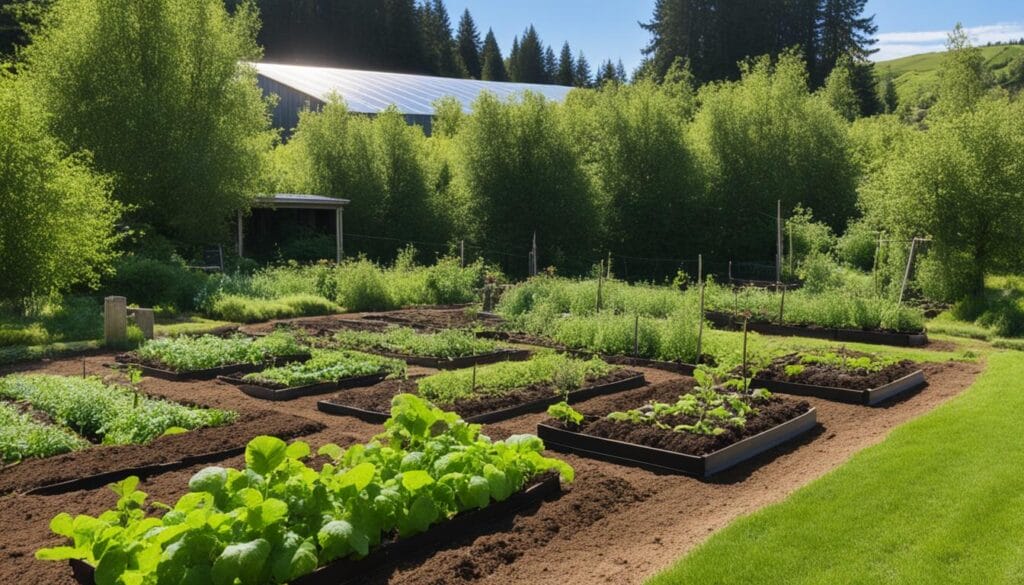
The Intersection of Feminized Seeds and Eco-Friendly Agriculture
Feminized seeds serve as cornerstone components in the matrix of sustainable agriculture. Their role is pivotal in maintaining the ethical cultivation standards inherent to biodynamic farming techniques. By ensuring crops are predominantly female, feminized seeds contribute to higher yields and more uniform growth, reducing the need for intervention with chemical fertilizers or pesticides that could otherwise harm the intricate web of life within the soil.
Eco-friendly agriculture is not complete without addressing soil health, and feminized seeds hold an integral role here too. They demand less intervention from external resources, thus allowing farmers to focus on enriching their soil with organic preparations and biodynamic composts—key practices that invigorate the earth and continue the cycle of vitality necessary for sustainable crop production.
Through ethical cultivation rooted in the time-tested wisdom of biodynamic methods, the adoption of feminized seeds comes full circle, embodying the pinnacle of what it means to care for the land that feeds us. Integrating these approaches represents an agricultural revolution where integrity and mindfulness toward the natural world are foundational to every seed sown and every harvest reaped.
Innovative Methods for Producing Feminized Seeds
In the dynamic world of cannabis cultivation, the quest for perfecting feminized seed production has led to a fascinating evolution of techniques. Progressive advancements and innovative methods are continually being introduced, drawing a line between the traditional techniques once used by cultivators and the modern techniques made possible through scientific progress. This ongoing innovation is not only revolutionizing the way seeds are produced but is also opening a debate around the ethical considerations inherent in these methods.
Traditional vs. Modern Feminization Techniques
The contrast between traditional and modern feminization methods is stark. Historically, feminized seeds were produced through environmental stress methods, where growers would manipulate the growing conditions in hopes that the female plants would produce seeds from stress-induced hermaphroditism. However, the efficacy of these methods often came into question due to the unpredictable nature of environmental stress and the potential for reduced crop quality.
Today’s growers, however, benefit from more reliable and sophisticated techniques. In the realm of modern feminized seed production, practices such as rodelization, silver thiosulfate, and colloidal silver treatments present a marked contrast to the trial-and-error of the past. These scientifically grounded methods ensure that almost 100 percent of seeds are feminized, minimizing the risk of male plant growth that can hamper the flowering process and impact the uniformity and quality of the crops.
Addressing the Ethical Debates in Seed Production
Nonetheless, the progression towards more advanced feminized seed production does not come without its ethical considerations. Critics of the modern approach argue that these innovations may lead to monocultures, indeed simplifying cultivation, but at the risk of narrowing genetic diversity. There is also an ongoing conversation about the naturalness of inducing feminization through the use of chemicals versus traditional breeding practices.
Consumer demand for organically produced crops and the burgeoning industry’s need for consistent quality and yield drive the necessity for a balanced approach. The ethical considerations at hand are complex and require a careful, nuanced understanding of the benefits and possible consequences associated with advanced feminized seed production practices—endeavoring to balance efficiency with a commitment to sustainability and biodiversity.
As we continue to explore the intricate dance between tradition and innovation in cannabis cultivation, it’s essential to maintain a discourse that encourages the responsible use of these powerful technologies, ensuring that the future of feminized seed production is both successful and aligns with the ethical tenets cherished by the community.
Advantages and Challenges of Feminized Seeds in Horticulture
The utilization of feminized seeds has become a substantial aspect of modern horticulture, presenting both remarkable benefits and unavoidable challenges for growers. This section critically analyzes the various facets of incorporating feminized seeds into horticultural practices, emphasizing the impact on crop yields and overall sustainability.
Pros of Using Feminized Seeds for Crop Yields
Feminized seeds are cultivated to carry a multitude of advantages that can significantly boost crop yields and efficiency in horticulture. Among their benefits, they offer consistency in plant traits, which translates to uniform growth and maturation rates across crops. Such uniformity is crucial in managing and predicting crop performances, thus allowing for precise horticultural planning and resource allocation.
Another advantage is the heightened guarantee of yielding flowering plants. As these seeds are nearly devoid of male chromosomes, the risk of pollination and subsequent seed production is minimized, which ensures the plant’s energy is devoted to creating robust flowers and fruit rather than seeds. This energy allocation boosts the quality and volume of the harvestable product.
Cons To Consider When Cultivating Feminized Seeds
While there are significant advantages to feminized seeds, certain challenges must be acknowledged when integrating them into horticultural operations. One such challenge lies in the potential for reduced genetic diversity, as the reliance on feminized seeds can lead to a homogenization of plant genetics within crops. Consequently, this could make crops more susceptible to diseases or pests that could exploit the uniformity of their genetics.
| Factor | Advantage | Challenge |
|---|---|---|
| Genetic Consistency | Predictable crop behavior and quality | Risk of widespread vulnerability to pathogens |
| Energy Allocation | Higher concentration on fruit/flower production | Requires strict monitoring to eliminate male traits |
| Resource Efficiency | Decreased waste in resources on non-flowering plants | Potential dependency on specific feminized strains |
Another point of consideration is the necessity for vigilant oversight to prevent hermaphroditism—an occurrence where feminized plants may develop both male and female reproductive parts. This can happen under certain stress conditions and can lead to self-pollination, hence reducing the purity of the crop yield. To mitigate this risk, growers must maintain optimal growing conditions and regularly inspect their plants.
Despite these hurdles, the role of feminized seeds in horticulture continues to advance, steadily transforming the realm of crop cultivation with their promised efficacy and consistent results.
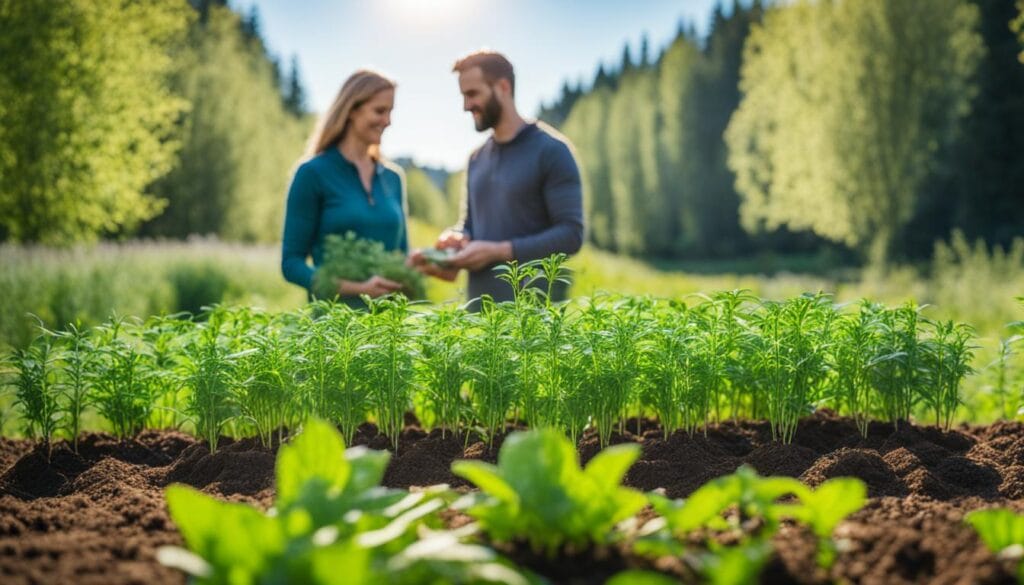
Biodynamic Farming Certification and Standards
In the realm of sustainable agriculture, rigorous standards and certifications serve as markers of quality and commitment to ethical practices. Among these, the Biodynamic Farming Certification stands out with its unique holistic approach to agriculture. This section delves into the intricacies of certification processes and standards, underscoring the synergy between biodynamic principles and sustainability.
Demeter Biodynamic® Certification Process
The pursuit of a Demeter Biodynamic® certification necessitates a farm’s adherence to stringent criteria that go beyond conventional farming methods. This process is not just about what is absent from the farming practices—such as synthetic pesticides and fertilizers—but also about what is present: biodiversity, ecological balance, and alignment with natural cycles.
Comparing USDA Organic and Biodynamic Standards
While both USDA Organic and Biodynamic certifications share the goal of Sustainable Agriculture, they differ in scale and scope. The USDA Organic certification is a widely recognized label that assures consumers of compliance with national organic standards, while the Demeter Biodynamic certification encompasses a broader ecological and ethical philosophy. Let’s compare these two sets of standards to gain a clearer understanding.
| Aspect | USDA Organic | Demeter Biodynamic® |
|---|---|---|
| Synthetic Chemicals | Prohibited | Prohibited |
| Genetic Modification | Prohibited | Prohibited |
| Soil Health and Fertility | Emphasized through organic inputs | Enhanced through specialized preparations and crop rotations |
| Conservation of Resources | Included in standards | Integral focus with an emphasis on closed-loop systems |
| Animal Welfare | Standards apply to feed and living conditions | Considered within the context of the farm’s entire ecosystem |
| Farm Ecosystem Management | Encourages biodiversity | Requires active creation and maintenance of a diverse ecosystem |
While both certifications strive towards ecological, social, and economic sustainability, Demeter Biodynamic® certification demands a comprehensive, integrated approach to farming that treats the farm as a living organism. This level of commitment underscores the potential of Biodynamic Farming Certification to drive the future of Sustainable Agriculture forward.
Critical Steps in Creating Feminized Seeds for Cannabis Cultivation
The meticulous journey of seed production for cannabis cultivation pivots on the mastery of creating feminized seeds. This process encompasses several essential steps to ensure high-quality yield and genetic consistency. Here’s a detailed walkthrough for cultivators aiming to produce robust feminized seeds.
- Selection of Parent Plants: Choose healthy female plants with desirable traits to act as mothers.
- Preparation for Seed Production: Maintain optimal environmental conditions and initiate hormonal treatments to induce female plants to develop male flowers.
- Pollination: Carefully collect pollen from the treated female plants and apply it to other female flowers to produce seeds.
- Monitoring and Care: Regularly check plants for signs of stress or hermaphroditism during the flowering phase.
- Harvesting Seeds: Once mature, gently harvest seeds from the plant, ensuring minimal disturbance to capitate stalked trichomes.
- Drying: To minimize the risk of mold or spoilage, dry the seeds at a stable temperature and humidity level.
- Quality Assessment: Test the seeds for viability and perform a germination test to ensure high germination rates.
- Storage: Store seeds in a dark, cool environment to maintain their viability until planting.
The following table provides an in-depth look at these steps in relation to their importance in the cannabis cultivation process:
| Step | Description | Importance |
|---|---|---|
| 1. Selection of Parent Plants | Identifying female plants with superior genetics and desirable characteristics. | Fundamental for high-quality and uniform crop yields. |
| 2. Preparation for Seed Production | Establishing the ideal environment for hormonal induction. | Crucial for the successful production of male flowers on female plants. |
| 3. Pollination | The precise application of pollen to fertilize female flowers. | Core to creating new seeds that are genetically feminized. |
| 4. Monitoring and Care | Ongoing observation for plant health during the flowering phase. | Vital for preventing any cross-contamination or genetic anomalies. |
| 5. Harvesting Seeds | Gathering mature seeds from the plant with precision. | Essential to avoid damage to trichomes and ensure seed integrity. |
| 6. Drying and Curing | Proper dehydration and storage preparation of the seeds. | Important for long-term storage and preservation of seeds. |
| 7. Quality Assessment | Testing for seed viability and germination rates. | Key to supplying growers with reliable and feasible seeds. |
| 8. Storage | Maintaining seeds in optimal conditions until use. | Imperative to sustain seed germination potential over time. |
Conclusion
The integration of feminized seeds into biodynamic farming practices illustrates a profound evolution in sustainable agriculture. Through the thoughtful synthesis of information presented in this article, it becomes clear that the intersection of these two approaches can significantly enhance the efficiency and eco-friendliness of agricultural processes. Feminized seeds offer the potential for higher crop yields, uniformity, and reduced resource consumption, making them a valuable asset in the pursuit of ethical cultivation.
In recognizing the pressing need for environmental stewardship and community well-being, biodynamic farming emerges as a holistic framework that encompasses both practical and spiritual aspects of food production. Combining this with the strategic use of feminized seeds creates an agricultural practice that not only yields physical benefits but also aligns with the ethical values that consumers increasingly demand. This synergy marks a step forward in aligning farming practices with the greater good of our world.
As the dialogue around food security, environmental conservation, and ethical standards continues to advance, it’s incumbent upon us—as consumers, farmers, and global citizens—to further explore and support methods like these that mitigate the impacts of agriculture on our planet. The intricacies of feminized seeds and biodynamic farming represent more than just farming techniques; they embody a movement towards a more responsible and sustainable future in agriculture.
Now that you understand the basics of feminized seeds and biodynamic farming, shop the collection of regular, feminized, and autoflower cannabis seeds at Seeds Here Now.
FAQ
What are feminized seeds?
Feminized seeds are cannabis seeds that are bred to eliminate the possibility of producing male plants. This ensures that all seeds will grow into female plants, which are the ones that produce the buds containing the desired cannabinoids.
How do feminized seeds fit into sustainable and ethical agriculture?
Feminized seeds play a crucial role in sustainable and ethical agriculture by promoting eco-friendly farming practices. They help reduce the need for pesticides and synthetic inputs, which can have a negative impact on the environment and human health. Additionally, by producing female plants that are consistent in their traits, feminized seeds contribute to the production of high-quality, ethically grown crops.
What are the benefits of using feminized seeds in biodynamic farming?
Using feminized seeds in biodynamic farming can increase crop yields, reduce environmental impact, and improve soil health. By eliminating the need for male plants, feminized seeds allow farmers to focus their resources on cultivating female plants for maximum productivity. This, in turn, promotes sustainable and ethical farming practices in line with biodynamic principles.
How are feminized cannabis seeds produced?
Feminized cannabis seeds are produced through genetic manipulation. Breeders induce female cannabis plants to produce pollen, which is then used to fertilize other female plants. This results in seeds that are almost always female, ensuring a higher probability of obtaining female plants during cultivation.
What makes feminized cannabis plants different from regular seeds?
Feminized cannabis plants are different from regular seeds because they have been selectively bred to eliminate the possibility of producing male plants. This means that all plants grown from feminized seeds will be female, ensuring the production of buds containing high levels of cannabinoids.
How do feminized seeds contribute to eco-friendly and sustainable farming practices?
Feminized seeds contribute to eco-friendly and sustainable farming practices in several ways. By eliminating the need for male plants, they reduce the use of resources and inputs, such as water and fertilizer. This promotes the conservation of natural resources and helps minimize the environmental impact of agriculture. Additionally, feminized seeds promote soil health by reducing the need for synthetic chemicals.
What are the advantages of using feminized seeds in horticulture?
Some advantages of using feminized seeds in horticulture include increased crop yields, consistent plant traits, and reduced labor and resources required for sexing and removing male plants. Feminized seeds allow growers to focus their efforts on cultivating female plants, which are the ones that produce the desired flowers or fruits.
Are there any challenges to consider when cultivating feminized seeds?
Yes, there are some challenges associated with cultivating feminized seeds. One potential challenge is the reduced genetic diversity that comes with using feminized seeds exclusively. This can make crops more vulnerable to pests, diseases, and other environmental stressors. Careful monitoring is also required to prevent the occurrence of hermaphroditism, which could result in the production of unwanted male flowers.
What is the Demeter Biodynamic® certification process?
The Demeter Biodynamic® certification process is the certification program for biodynamic farming. It involves a comprehensive review of a farm’s operations to ensure compliance with strict standards and criteria. Farms seeking certification must demonstrate their commitment to sustainable agriculture, including the use of biodynamic practices, biodiversity conservation, and the ethical treatment of livestock.
How do biodynamic standards compare to USDA Organic standards?
While both biodynamic and USDA Organic standards share a commitment to sustainable agriculture, they have some differences in their approach. Biodynamic standards go beyond organic practices by incorporating additional principles, such as the use of biodynamic preparations, biodiversity conservation, and the consideration of the farm as a holistic organism. Both certifications offer valuable frameworks for ethical and sustainable farming.
What are the critical steps involved in creating feminized seeds for cannabis cultivation?
The critical steps involved in creating feminized seeds for cannabis cultivation include selecting parent plants with desired traits, inducing female plants to produce pollen, using that pollen to fertilize other female plants, and carefully harvesting and storing the resulting seeds. Attention to detail and proper technique are essential in ensuring successful seed production.
Suggested Articles
;)
;)
;)




 03 Jul 2025
03 Jul 2025  10 min read
10 min read
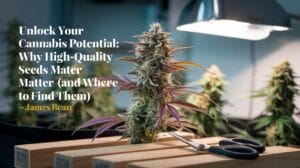
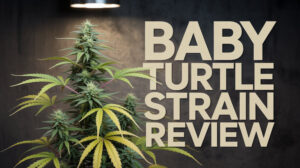
 August 19, 2024
August 19, 2024 


RESPONSES (0)
No responses yet. Be the first to respond!